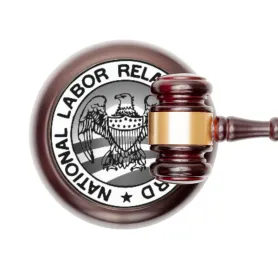On June 13, 2023, the National Labor Relations Board (“NLRB”) issued its decision in The Atlanta Opera, Inc., 372 NLRB No. 95 (2023), overturning the current standard for determining independent contractor status and returning to a previous test. Because section 2(3) of the National Labor Relations Act (“NLRA”) excludes independent contractors from the broad group of workers covered by the statute, whether workers are considered employees or independent contractors determines whether workers can exercise rights guaranteed by the NLRA, such as forming unions and engaging in protected concerted activities.
In the new decision, the NLRB ruled that Atlanta Opera’s makeup artists, wig artists, and hairstylists were employees rather than independent contractors, making them eligible to unionize. The NLRB applied its previous independent contractor standard from FedEx Home Delivery, 361 NLRB 610 (2014) (“FedEx II”). The reinstated framework requires the NLRB to weigh a series of non-exhaustive factors with no one factor being decisive. These factors, rooted in the Supreme Court’s decision in NLRB v. United Insurance Co. of America, 390 U.S. 254 (1968) and the Restatement (Second) of Agency § 220 (1958), include:
-
the extent of control the employer may exercise over the details of the work;
-
whether the individual is engaged in a distinct occupation of business;
-
whether the work in usually done under the direction of the employer or by a specialist without supervision;
-
the skill required in the particular occupation;
-
whether the employer or the individual supplies the instrumentalities, tools, and the place of work;
-
the length of time for which the individual is employed;
-
the method of payment, whether by time or by the job;
-
whether the work is part of the regular business of the employer;
-
whether the parties believe they are creating an independent contractor relationship; and
-
whether the principal is or is not in business.
Although Super Shuttle DFW, Inc., 367 NLRB No. 75 (2019), used the same set of ten factors, the Trump-era NLRB emphasized “entrepreneurial opportunity” as “a principle by which to evaluate the overall effect of the common-law factors[.]” Under FedEx II, entrepreneurial opportunity remains a consideration, however the worker must realistically engage in independent business activities for entrepreneurial opportunity to support independent contractor status.
Atlanta Opera marks the second change to the NLRB’s independent contractor standard in the last five years—one of the many and increasing number of NLRB tests that change based on Presidential administration. Notably, the test does not determine employee status for other federal and state laws.
Whether workers are employees or independent contractors is a fact-intensive inquiry with a multitude of legal implications. Employers that regularly use independent contractors should consider auditing their workforce with the help of experienced labor and employment counsel.



 />i
/>i

